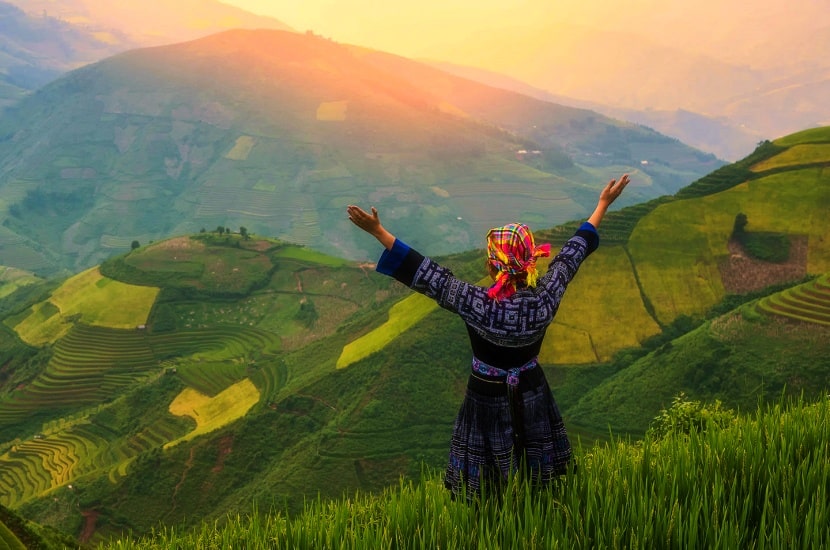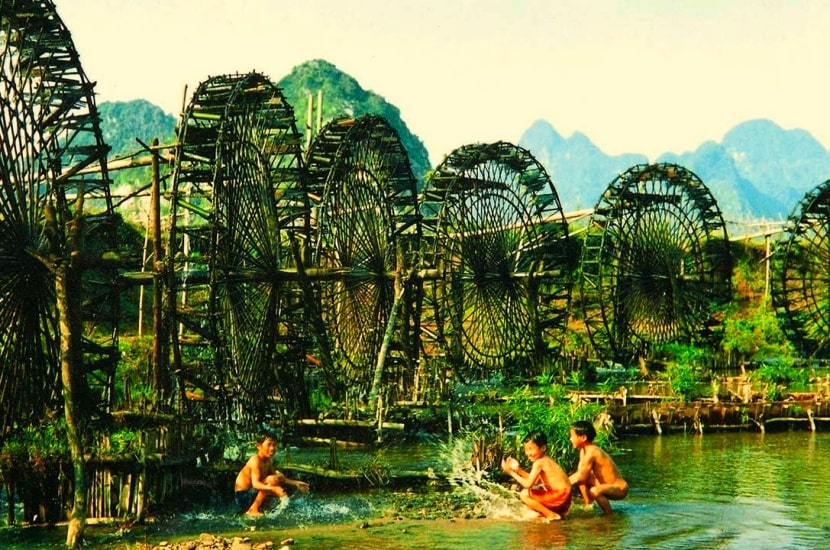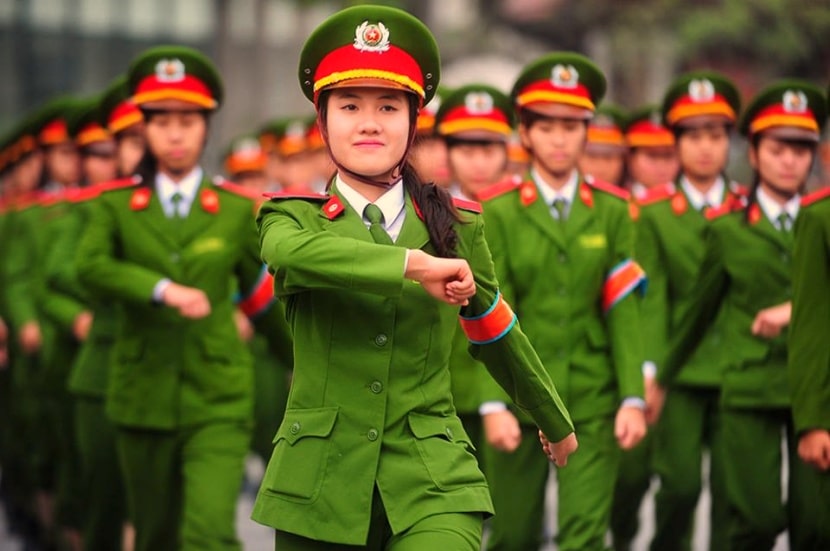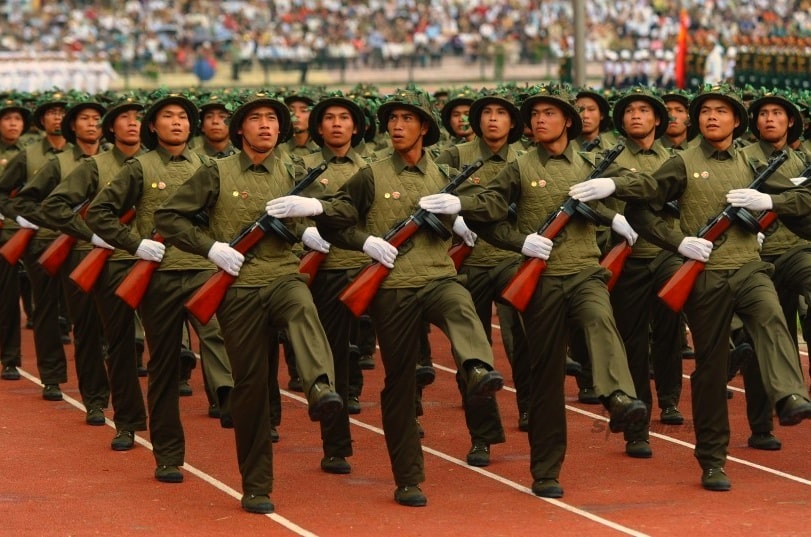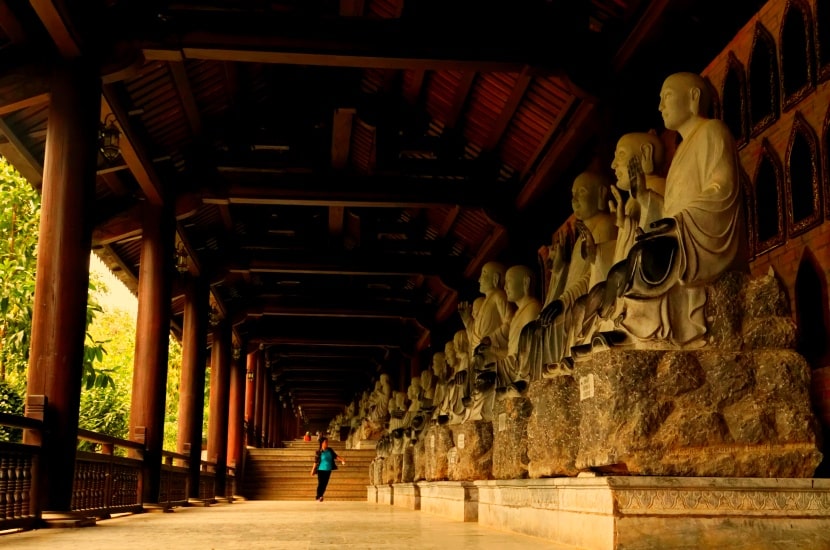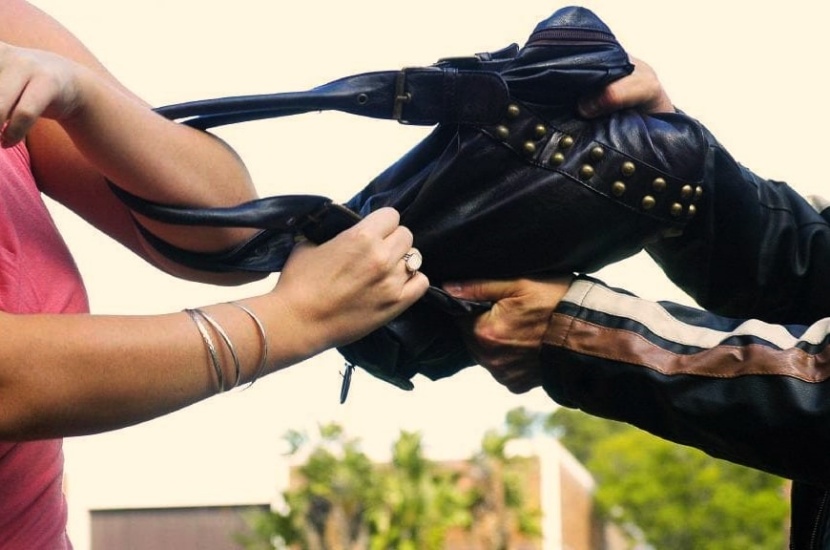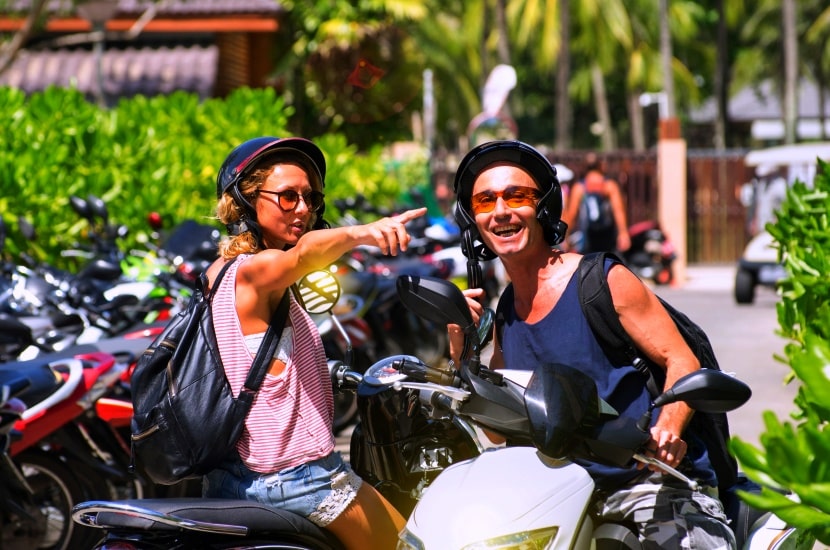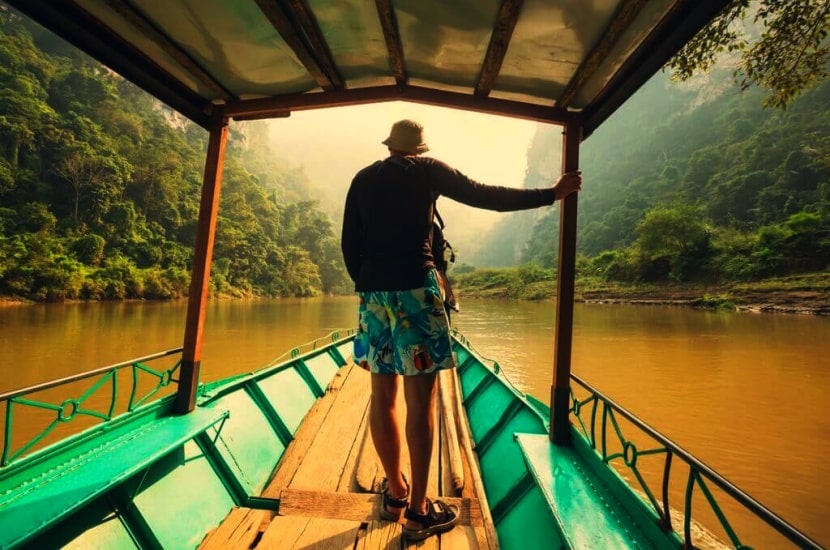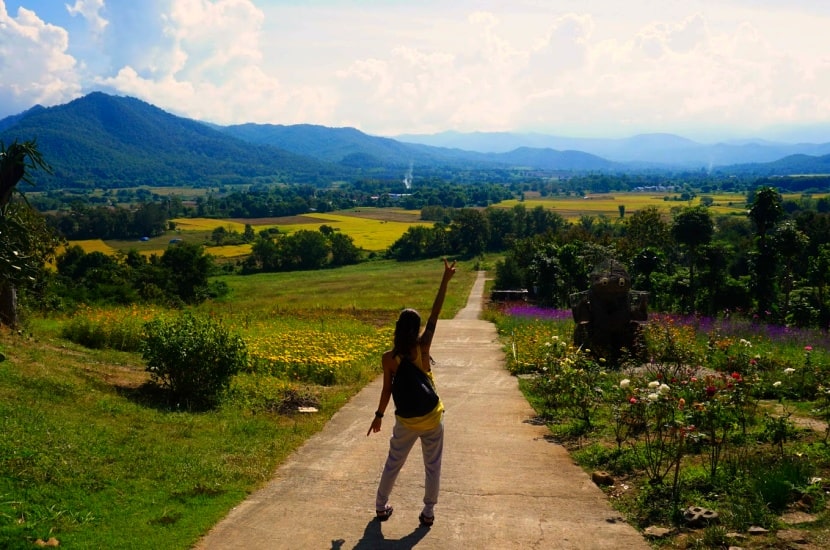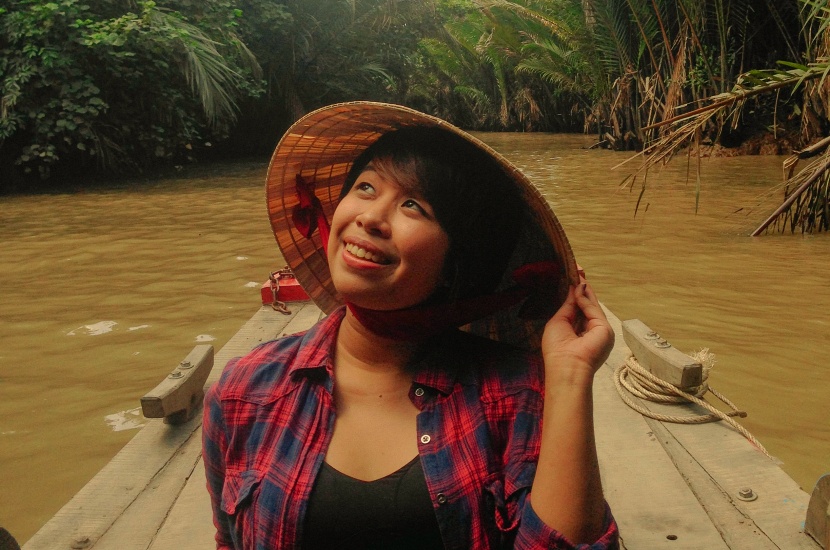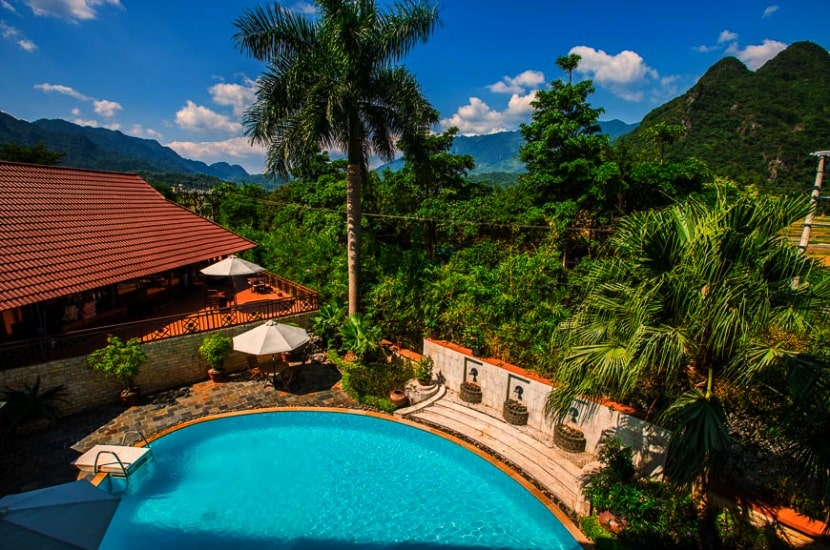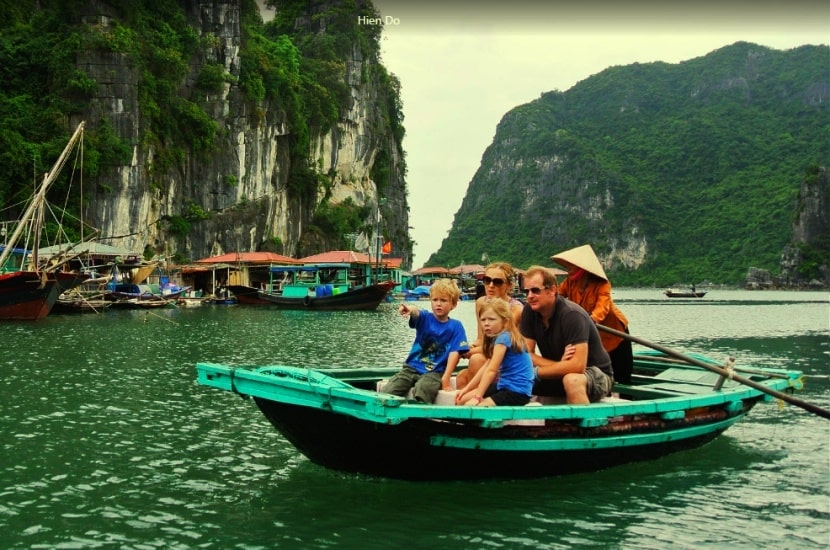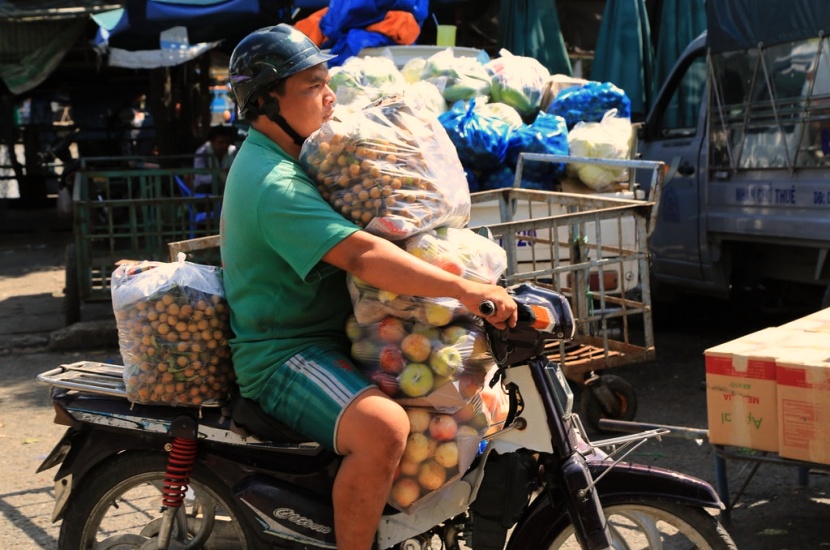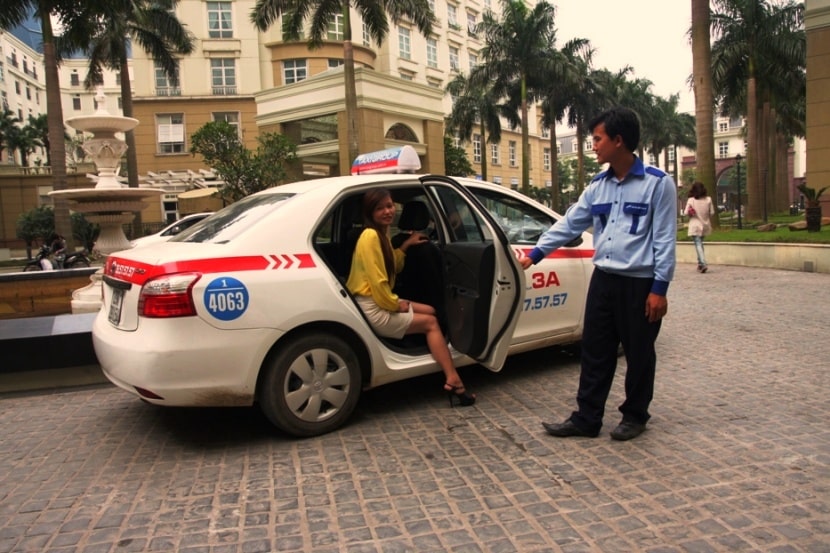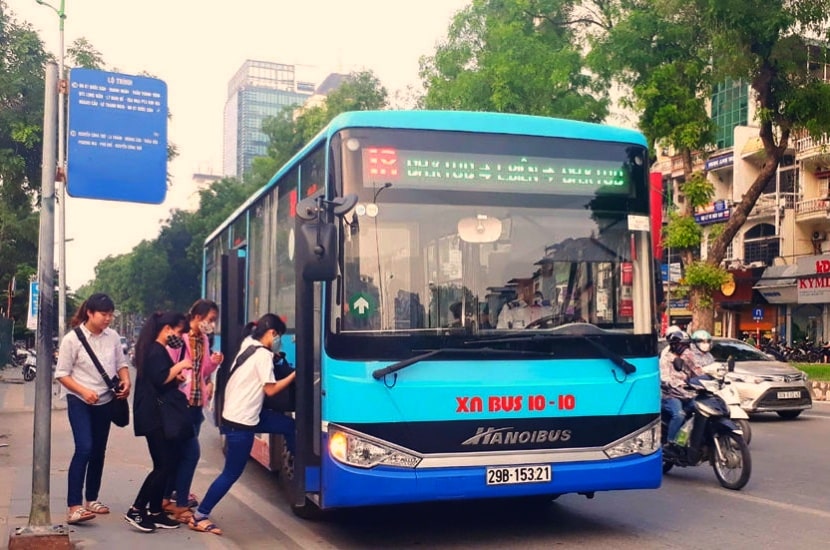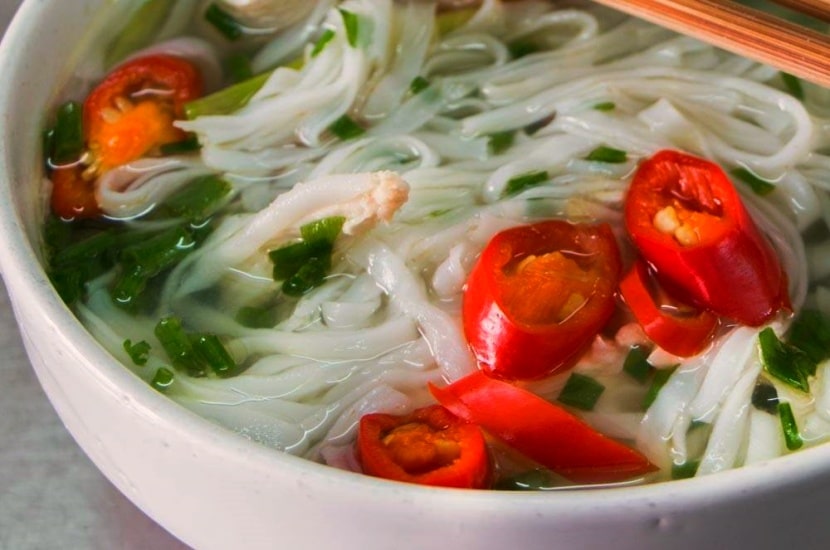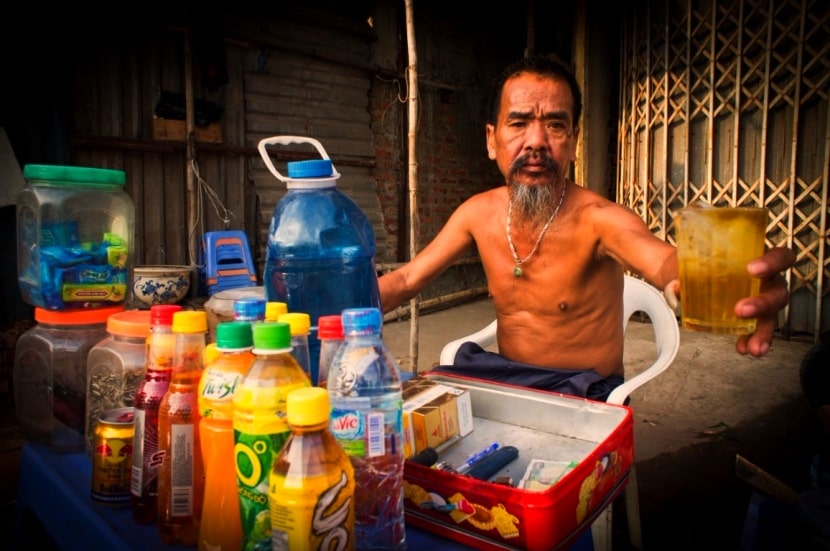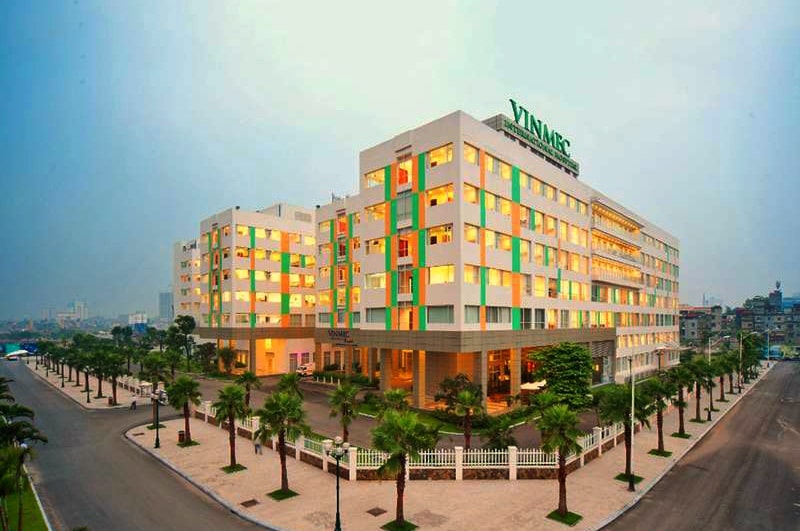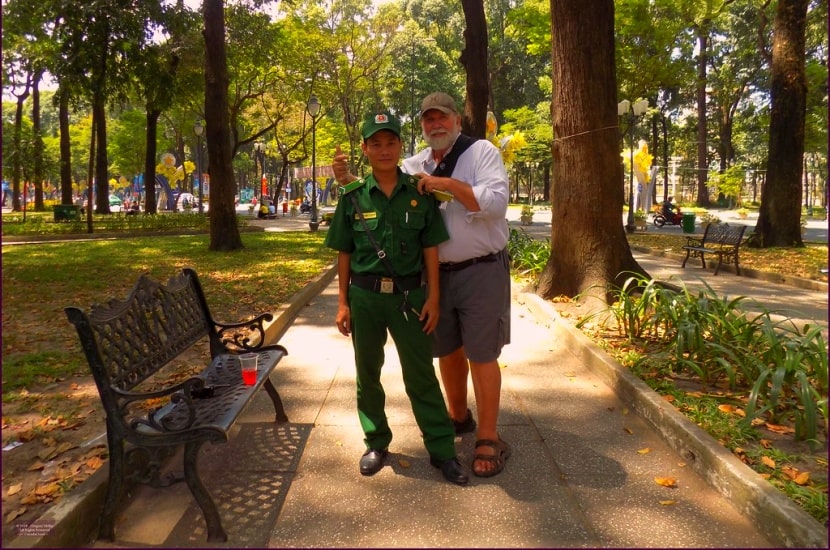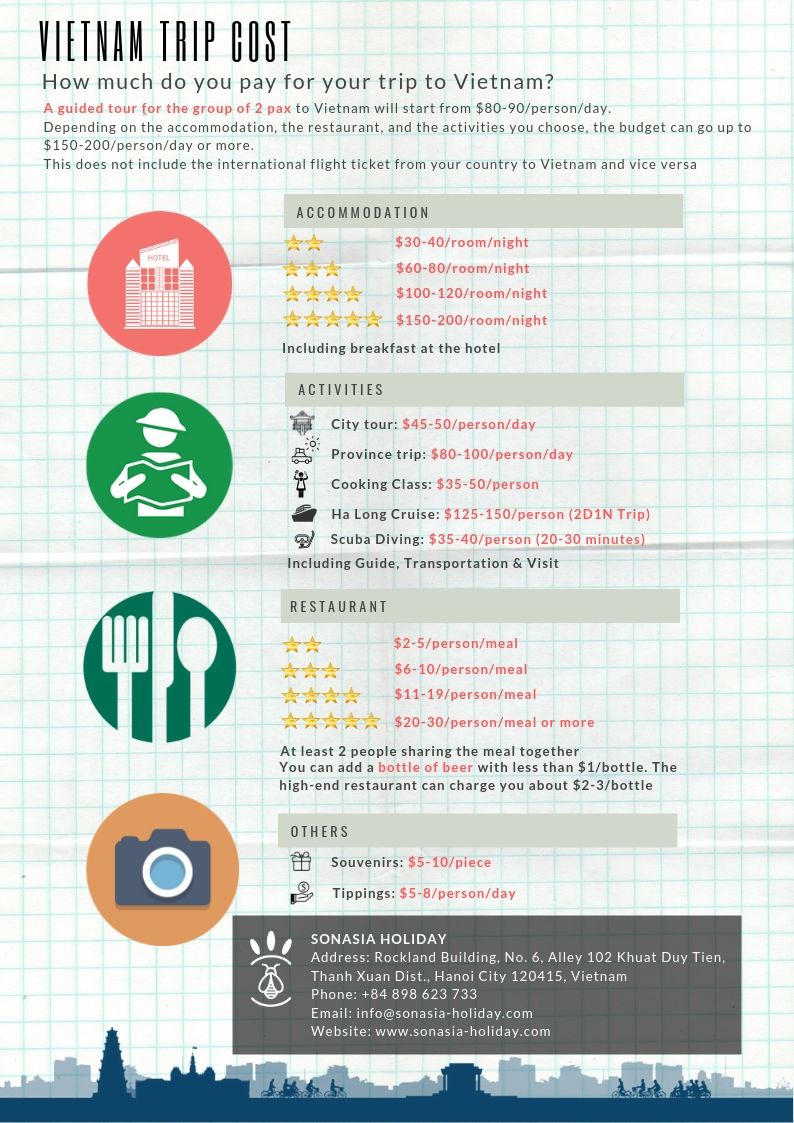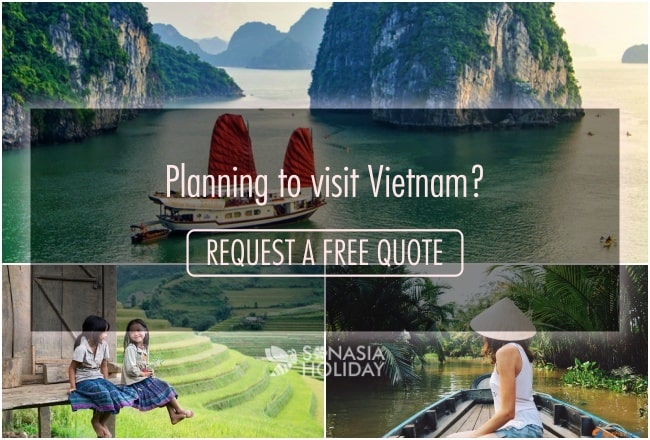1. Money switch
It’s usually motorbike taxi drivers that try this one. They use sleight of hand to switch whatever money you give them for smaller denominations, and then they put on a dramatic show of indignation — like you’re the one trying to rip them off. The most common version is switching a 500,000VND note for a 20,000VND, which is easy to fall for since they’re both blue.
How to avoid it: Try to prepare and pay with small bills. Break your larger bills at convenience stores, restaurants, or other reputable businesses.
Learn more about Vietnam national currency here
2. The coconut photo shoot
This one happens mostly in Hanoi. Street vendors with baskets of coconuts will ask if you want to use their bamboo baskets for a photo shoot. But while you’re clicking away, they’re chopping open coconuts for you that cost an obscene amount. You didn’t ask for them? Get ready for some shouting and a crowd of people who don’t take kindly to foreigners cheating locals.
How to avoid it: If you don’t want to pay for a picture, politely but firmly say ‘no’.
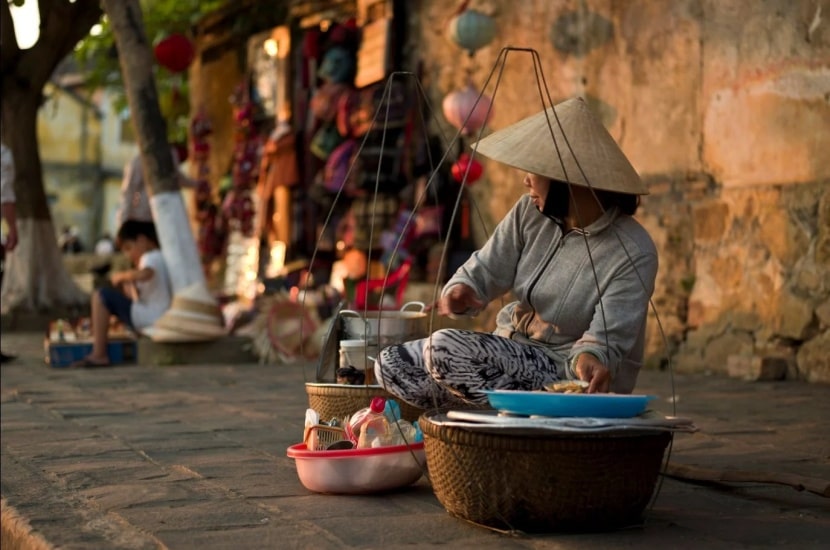
3. The groin grab
This one preys on men in touristy areas. An attractive girl will start flirting with a man off by himself, telling him how handsome he is and asking if he wants a massage as she plays with his groin. While he’s distracted, she empties his pockets. Girls often work in teams for this one.
How to avoid it: Do not be distracted with a strange beautiful girl, and do not try something like that as it is illegal in Vietnam
4. Fake taxis
Fake taxis are so common throughout Southeast Asia they’re pretty much an essential experience, but not if you’re clued in. While taxi licensing isn’t well regulated, there are still some signs you should look out for before getting into a cab. For instance, the Vietnamese pride themselves on providing professional services, and they’ll dress accordingly. If your taxi driver isn’t wearing a shirt, tie and slacks, it’s likely they’re not a licensed cab driver.
Similarly, some cabs will paint their cars to look like licensed taxis (which are usually green or white). They’ll also put a sign on their doors advertising they are ‘metred’. Ironically, this is done to attract tourists who might be worried about unmetered taxis. Once these hapless passengers get in, they quickly realise they’re being taken for a ride (and not the one they intended).
How to avoid it: Before climbing into a taxi, check for branding to make sure it is properly licensed operator (such as Vinasun Taxi), the driver is dressed professionally and the car isn’t spruiking its ‘metred’ services.
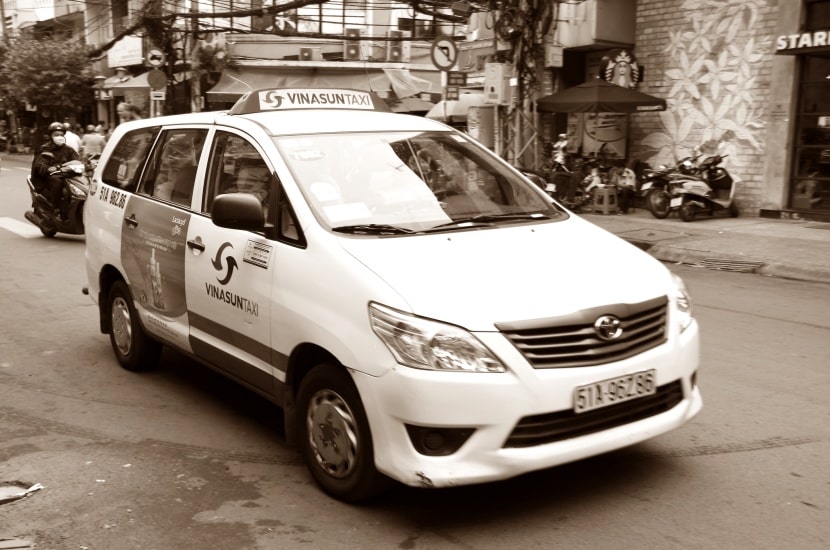
5. Fake travel companies
This one is similar to the fake taxis mentioned above. When a travel company gets popular, fake businesses open shops with similar names, hoping to trick foreigners who are unfamiliar with Vietnamese. Of course, you cannot expect something good from those copycats.
How to avoid it: Research everyone online before you buy from them and check the spelling closely.
6. Gambling
Tourists have been victims of gambling scams in Hanoi and Ho Chi Minh City (particularly in the Pham Ngu Lao neighbourhood). This scam usually starts with a friendly invitation to someone’s home to meet a relative interested in visiting or studying in Canada. While the visitor is waiting for this individual, a casual game of cards will begin. Even though they started with only a small wager, victims have lost thousands of dollars over the course of an evening.
How to avoid it: Do not join any invitation of any casual game at all. Even if you are good at that, you can never win and walk away easily.
7. Beggars & touts
At some tourist spots, you may be surrounded by beggars and street sellers who sell fruit, chewing gum or souvenirs. Sometimes ethnic children even ask you for money to take photos of them. Try to say “No” if you feel uncomfortable.
Some Vietnamese people think that foreign tourists are rich, so avoid being overcharged. Remember always negotiating the price when you buy anything. Check information with your guide or hotel receptionist, and give them the fair price.
When entering a restaurant, ask the waiters/waitresses to see their menu before ordering. There are plenty of convenience stores and supermarkets in big cities in Vietnam, head to these places if you want to buy a bottle of water or a quick snack.
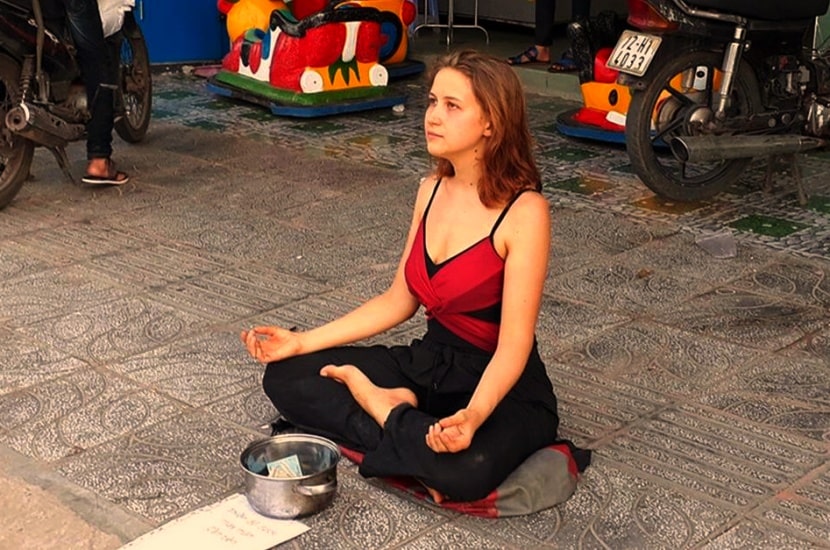
8. The two-shine
If you’re wearing dress shoes in a touristy area, prepare to be hounded by shoe-shiners. Oftentimes, foreigners accept just to be left alone. They negotiate a price, but when the shoes come back, the price has doubled, because the price they gave you was for just one shoe. If the foreigner puts up a stink, underworld muscle is never too far away.
How to avoid: If it is not necessary, there is no need to clean your shoes on the street. In case you really want to try, make a firm negotiation before giving them your shoes. The guide also can help you with this.
9. A fine bag of tea
Marijuana is illegal in Vietnam, but many foreigners smoke it openly. The problem is that tourists usually buy it from the motorbike taxi drivers who lurk around the hostels and bars. They’ll let you smell a bag of real marijuana as they negotiate the price, but once you pay, they’re gone and you’re left with a bag of tea. And good luck reporting it to the Better Business Bureau.
How to avoid: As said, it is illegal in Vietnam, do not even try this.
10. The motorbike/cyclo tour
Walking down the street you might have a motorcyclist slow down and practice some small talk – ‘where are you from?’, ‘how do you like my city?’. Eventually they will ask where you’re going and offer you a ride for a small fee. If you agree and climb aboard, they’ll then charge you an inflated price once you arrive at your destination. Try to argue and they’ll say you misheard them when they first picked you up. It’s a common trick that takes advantage of curious tourists who want to experience the country’s famously frenetic traffic up close.
The motorbike scam can also be an invitation to see the rice paddies just outside town, or as a guided city tour (such as in Hue or Hoi An).
How to avoid it: If you’re tempted by the idea of a motorbike ride, talk to your tour leader or hotel reception about booking a tour with a licensed tour operator.
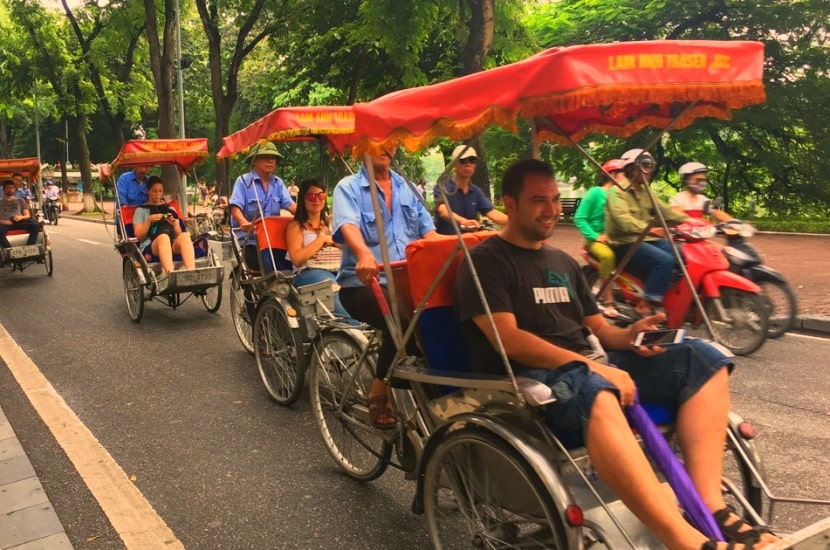
11. The wandering fare
Even the reputable taxi companies have drivers that pull this one on tourists. Foreigners don’t really know the best routes, so the drivers use this to their advantage. They take a creatively long and circuitous route, often pretending to be lost so they can get a few more dollars by wandering around through back streets. A good way to avoid this is by having a map open on your phone. If the driver goes off in a strange direction, wave the map at them.
How to avoid: The best way to avoid this is to take Uber or Grab. They follow routes on the map.
12. The luggage handler
From Rome to Rio, the luggage handler is a common character around the world. If you’re getting ready for an overnight train, or simply loading your taxi for the airport, you might meet one. They’ll swoop in unexpectedly and pick up your bag, carry it to your carriage or car, and stow it for you. Meanwhile you’re left standing there wondering what just happened. As the luggage handler sees it, they just provided you with a service and should be tipped.
How to avoid it: The best thing you can do to prevent this is to keep a close eye on your bags around train platforms and ask the train station staff or taxi driver to help you lift your bags. If you’ve been stung, you could try hold your ground and refuse to offer a tip (although it might be better to give them something small to make them go away).
13. The squeaky donut
Street food is everywhere in Vietnam (and it’s absolutely delicious), but there are a few street snacks you should be wary of. Occasionally you’ll walk past street vendors carrying plastic bags of little brown donuts. They’ll stop and ask if you’d like to try one for free (a universal red flag, people). If you say ‘yes’ and taste one, the vendor will gently pressure you into buying a small bag of donuts. On the surface this might seem simple enough; after all who doesn’t want a bag of crunchy fried donuts? The problem is the oil used to fry these donuts is unregulated. You don’t know where the oil has come from and it could go unchanged for days (or even weeks) at a time, meaning your donuts might have been cooked in unsanitary conditions. Many travellers have reported feeling sick after eating street donuts.
How to avoid it: With so many great street food options available, skip the donuts and opt for another street snack instead – like banh mi or banh xeo (stuffed pancakes).
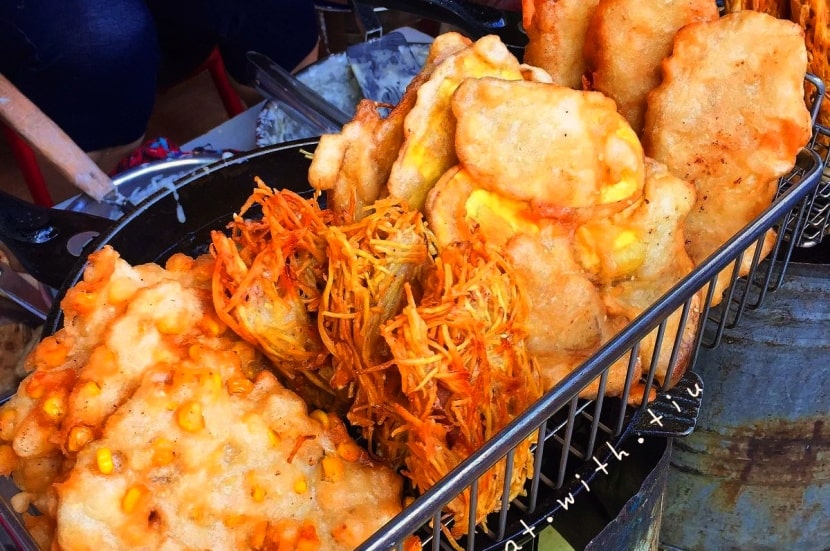
It’s important to remember that these tricks are few and far between and, while it’s something to be mindful of, they shouldn’t keep you from enjoying all the temples, street food and tea houses this beautiful country has to offer.
